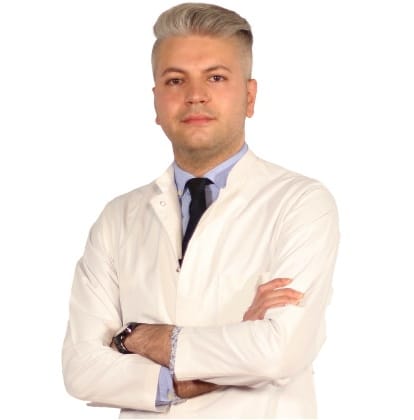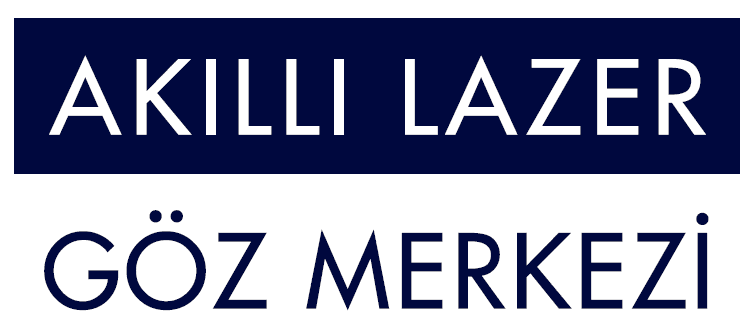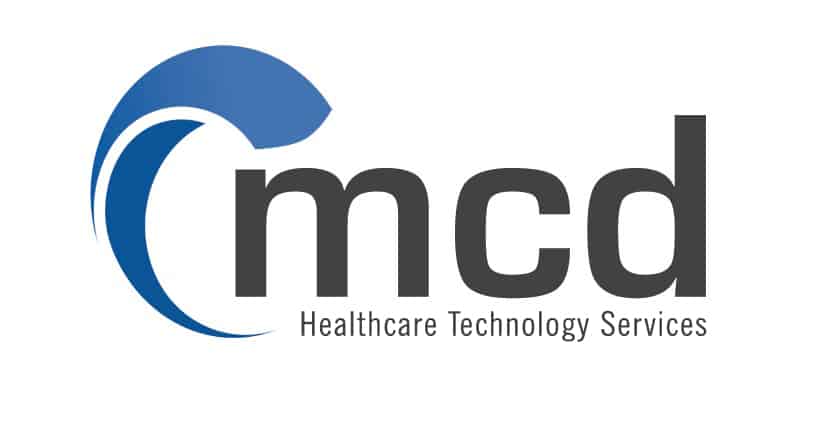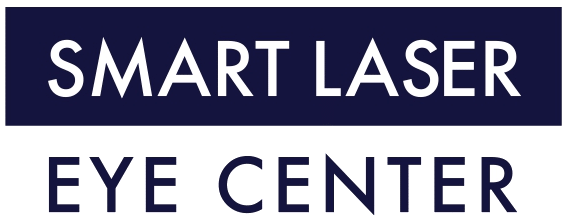Sensitive Profile Patient Program
About Sensitive Profile Patient Program
Why you need Sensitive Profile Patient Program?
Our patients who use high prescription contact lenses or glasses or who are over 40 years old with reading vision problems are non-standard and evaluate in the Sensitive ProfilePatient Program.
High prescription contact lenses or glasses definitions:
- -6 and/or higher for Myopia (Nearsightedness).
- (+4) and/or higher for Hyperopia (Farsightedness).
- Astigmatism (-/+4) and/or higher.
You will be evaluate for Sensitive Profile Patient Program. In addition, our patients with Keratoconus and Presbyopia, Nearsightedness, Farsightedness and Astigmatism problems over the age of 40 are treat in the Sensitive Profile Patient Program.
Benefit of Sensitive Profile Patient Program
Laser Eye treatments with Smart Laser technology are apply to our patients who are accept in the Sensitive Profile Patient Program. In particular, the treatments of our patients who use high prescription glasses are follow closely for 1 year and laser surgery can be plan more than once if necessary. The patients includes in this program are charge for once and the treatment program is apply repeatedly in a way that does not create additional cost.
Useful links
Laser Eye Surgery. Cataract and Lens Replacement Eye Surgeries. Keratoconus Cross-Linking Surgery. Cornea Transplant. Blepharoplasty Aesthetic Surgeries. Vitrectomy Surgeries. Prosthetic Eye Surgeries. Strabismus Crossed Eye Squint Treatments, Diabetic Retinopathy Disease. Glaucoma Disease and Treatments. Retinitis Pigmentosa Disease and Treatments. Dry Eye Syndrome Treatments. Periodic Eye Examinations. FAQ.
Laser Shooting
With the push of a button, your doctor directs the robotic laser to your eye. After this stage, the robotic laser finds your eye, locks onto your eye and approaches your eye until the distance to which the laser shot will be fired. After the laser reaches the distance to be shot, your doctor starts the laser shot and the laser process is completed. Afterwards, the robotic laser leaves your eye and returns to its place.
End of The Surgery
After the laser shot is completed, your doctor will wash your eye. It places the opened flap in the same way. If your doctor deems it necessary, may placed soft contact lenses for protection. Finally, the eye drops are dripped into your eyes and your surgery is completed. Then you can get up from the table.
First 24 Hours
In the first 5-6 hours after the surgery, there may be a mild or moderate stinging or burning sensation. It is recommended to sleep during this time. After 5-6 hours, your vision starts to improve. During this period, you should definitely not touch your eyes and use the eye drops given to you. The day after the surgery, your doctor who performed the surgery will examine you.
After 1 Month
At the end of the first month, you must give us a visit for after surgery examination. The first month examination is very important for your eye health. All tests and examinations will be done again. The condition of your eyes will be evaluated and information will be given about the success of the surgery. The healing process of your cornea continues until the sixth month. Temporary side effects of the surgery, if any, will decrease and disappear during this period. It is recommended that all our patients have eye check-ups every year.
Frequently Asked Questions
At what age can I have Laser Eye Surgery?
Laser Eye surgery can apply to patients aged 18 years and older with suitable eye structure under normal conditions.
Should I choose LASIK Laser Eye surgery or (No-Touch) TransEpithelial-PRK Laser Eye surgery?
Absolutely LASIK! LASIK Eye Surgery is the right choice for the comfort of the patient. Especially No-Touch T-PRK, is the last choice for patients whose eyes are not suitable for LASIK surgery. In the No-Touch method, the patient spends 4 days with severe pain, stinging and burning sensation. Vision improves slowly after 1 week and it may take 3 months to achieve a good vision. The patient may not be able to continue his normal life for 1 week. Therefore, LASIK is the most accurate and reliable laser surgery method for the comfort of the patient.
Medically, No-Touch can be eligible for patients with corneas below the medical limits or who have had previous retinal detachment surgery and patients with glaucoma or patients with special conditions.
When can I return to my normal life after LASIK Laser Eye Surgery?
You will be ask to rest or sleep for 5-6 hours after LASIK Laser Eye Surgery. Then you can return to your normal life at home. You can go to work and drive the next day. After 2 days, you can have a shower. You can not do make-up and enter the pool and do any sweaty sports activity 2 weeks after LASIK Laser Eye Surgery.
I was told that my corneal thickness is thin, can I still have LASIK Laser Eye Surgery?
If your corneal thickness does not meet the medical thickness, your doctor may prefer PRK, LASEK, or No-Touch T-PRK method.
Can Keratoconus patients have Laser Eye Surgery?
Keratoconus
Keratoconus is a slowly progressive degenerative eye disease that causes the cornea to become thinner and outward cone than normal. Significant vision problems, such as vision loss, may also result. You can stop this disturbing disease with Cross-Linking Surgery. Patients must use Prescription glasses. For our patients who have reached a certain age older than 35 years old and whose cornea is suitable, Laser Eye Surgeries can be apply together with Cross-Linking treatment to get rid of eye defects and prescription glasses. Also Intraocular Phakic ICL lens application can be a solution for our patients who have Keratoconus. And also who cannot have Laser Eye Surgery because of thin cornea or have a very high prescription.
What are the most common risks and temporary side effects?
Laser Eye Surgery
In Laser Eye Surgery, there are a number of complications that can be dealt with, though rarely. As such, it is important to choose an expert eye surgeon who often deals with eye complications.
The list of Surgery Risks and rare complications:
- Eye infections that may occur when people do not take their medication properly.
- Epithelial ingrowth.
- Flap slippage due to unconscious contact after the surgery
- “Haze” blurry eye.
These problems can be compensated with medical intervention.
Do I need to have surgery again?
There is a possibility of re-operation, especially in patients who use high prescription glasses. That’s why Sensitive Profile Patient Program available for high prescription patients.
Is Laser Eye Surgery 100% guaranteed for life?
One of the most frequently mentioned issues among patients is the increase in eye dioptries after surgery. Basically, laser eye surgery is a correction surgery. No doctor can guarantee that your eyes will not deteriorate in the future. Although doctors will only comment on your eye condition in future. Your eye is an important organ of your body and it ages with you just like your other organs. It is possible for your eyes to deteriorate again for any medical reason after this surgery. However, under normal conditions, the eye of a healthy individuals will not deteriorate.
However, if you have some cronical diseases that cause deterioration of our eyes (such as diabetes, hypertension, heart and kidney diseases, etc. ). It is important to be under strict control. Visit your eye doctor regularly. A lifetime guarantee cannot be offer to the patients in all refractive eye treatments. In case your eyes deteriorate again in the future, your doctor will try to correct your eyes with possible treatments.
What should you expect after laser eye surgery?
- Temporary flashes of light in your night vision after surgery.
- The sun is very bright during the day.
- Temporary dry eye syndrome.
In order to avoid these, you must follow the actions your doctor tells you to take.
Especially for Presbyopia patients, your doctor will give you specific advice. The duration of treatment satisfaction will vary according to the age of each patient. Patients over the age of 50 may be more satisfy with Presbyopia LASIK Smart Laser Eye Surgery. This is because their reading vision problem will progress slowly. Your doctor will definitely inform you about this. Do not forget that since everyone’s eye structure is different, no patient is exactly like another patient.
What are the important complications for No-Touch (T-PRK) or PRK Laser Eye Surgery?
Especially in this technique, A long-term laser beam or by manual surgical procedure removes the epithelial top layer of cornea. For this reason, the patient spends 3-4 days in severe pain and discomfort after the surgery.
In this technique vision capability restore back in 1 week. Accordingly for a good vision, patients needs to wait about 1-2 months. This method uses more laser beams and heat on the cornea than the LASIK technique.
In order to prevent the risk of “Haze” blurry eye complications due to thermal impact. Some medications and procedures need to applies during the surgery. However, these medications and procedures are not 100% guaranteed to eliminate the risk of “Haze”. No-Touch or PRK method is not eligible for hyperopia patients because of the risk of “Haze” depending on the condition of the eye. There is no “Haze” Risk in LASIK Laser Eye Surgery.
How can this risk be minimized?
We use the new Excimer Laser Technology “Dynamic Spot Technique” to minimize the risk of “Haze”. This is a technique which minimizes risk of thermal impact “Haze” complication. It is widely use in Smart Laser Eye Centers.
Can Laser Eye Surgery cause a permanent problem?
Especially Laser Eye Surgery will not cause permanent damage to the eyes of patients. Unless if there is any technical, medical and / or doctor’s fault. Especially in Smart Laser Eye Centers, all surgeries are recording and storing in our cloud system for training and quality assurance purposes.
The important factors related to laser eye surgery.
Laser Eye Surgery
In Laser Eye Surgery, there are a number of complications that can be dealt with, though rarely. As such, it is important to choose an expert eye surgeon who often deals with eye complications.
The list of Surgery Risks and rare complications:
- Eye infections that may occur when people do not take their medication properly.
- Epithelial ingrowth.
- Flap slippage due to unconscious contact after the surgery
- “Haze” blurry eye.
These problems can be compensated with medical intervention.
Do I need to have surgery again?
There is a possibility of re-operation, especially in patients who use high prescription glasses. That’s why Sensitive Profile Patient Program available for high prescription patients.
Is Laser Eye Surgery 100% guaranteed for life?
One of the most frequently mentioned issues among patients is the increase in eye dioptries after surgery. Basically, laser eye surgery is a correction surgery. No doctor can guarantee that your eyes will not deteriorate in the future. Although doctors will only comment on your eye condition in future. Your eye is an important organ of your body and it ages with you just like your other organs. It is possible for your eyes to deteriorate again for any medical reason after this surgery. However, under normal conditions, the eye of a healthy individuals will not deteriorate.
However, if you have some cronical diseases that cause deterioration of our eyes (such as diabetes, hypertension, heart and kidney diseases, etc. ). It is important to be under strict control. Visit your eye doctor regularly. A lifetime guarantee cannot be offer to the patients in all refractive eye treatments. In case your eyes deteriorate again in the future, your doctor will try to correct your eyes with possible treatments.
What should you expect after laser eye surgery?
- Temporary flashes of light in your night vision after surgery.
- The sun is very bright during the day.
- Temporary dry eye syndrome.
In order to avoid these, you must follow the actions your doctor tells you to take.
Especially for Presbyopia patients, your doctor will give you specific advice. The duration of treatment satisfaction will vary according to the age of each patient. Patients over the age of 50 may be more satisfy with Presbyopia LASIK Smart Laser Eye Surgery. This is because their reading vision problem will progress slowly. Your doctor will definitely inform you about this. Do not forget that since everyone’s eye structure is different, no patient is exactly like another patient.
What are the important complications for No-Touch (T-PRK) or PRK Laser Eye Surgery?
Especially in this technique, A long-term laser beam or by manual surgical procedure removes the epithelial top layer of cornea. For this reason, the patient spends 3-4 days in severe pain and discomfort after the surgery.
In this technique vision capability restore back in 1 week. Accordingly for a good vision, patients needs to wait about 1-2 months. This method uses more laser beams and heat on the cornea than the LASIK technique.
In order to prevent the risk of “Haze” blurry eye complications due to thermal impact. Some medications and procedures need to applies during the surgery. However, these medications and procedures are not 100% guaranteed to eliminate the risk of “Haze”. No-Touch or PRK method is not eligible for hyperopia patients because of the risk of “Haze” depending on the condition of the eye. There is no “Haze” Risk in LASIK Laser Eye Surgery.
How can this risk be minimized?
We use the new Excimer Laser Technology “Dynamic Spot Technique” to minimize the risk of “Haze”. This is a technique which minimizes risk of thermal impact “Haze” complication. It is widely use in Smart Laser Eye Centers.
Can Laser Eye Surgery cause a permanent problem?
Especially Laser Eye Surgery will not cause permanent damage to the eyes of patients. Unless if there is any technical, medical and / or doctor’s fault. Especially in Smart Laser Eye Centers, all surgeries are recording and storing in our cloud system for training and quality assurance purposes.
How much does laser eye surgery cost?
Laser Eye Surgery Pricing
The procedure does to treat refractive errors more effectively. Laser Eye Surgery is usually performing on two eyes. Sometimes patients would need correction for only one eye. Therefore price can give for single eye surgeries.
We give laser eye surgery pricing as includes all on the cost.
Laser Eye Surgery outcomes include the performance of the following actions:
- Laser eye surgery eligibility checks (free of charge).
- Surgery Examination.
- 2 eye drops they use for the first month.
- Protective Glasses.
Click here for all pricing details details.
Your Expert Eye Surgeons

Education Information:
After graduating from primary school in Trabzon, Dr. Ofluoglu. He completed secondary and high school in Istanbul. He graduated from Istanbul University Cerrahpasa Faculty of Medicine in 1987. He successfully completed his ophthalmology residency at the Medical University of Vienna, Austria. He received his specialization equivalency in Turkey from Istanbul University Capa Faculty of Medicine . He worked as an Ophthalmologist at Taksim German Hospital between 1997-2014 as an ophthalmologist.Work experience:
German HospitalGalata Medical AcademyCertificates, Memberships, Scientific Publications:
- Articles Published in International Refereed Journals (Sci&Ssci&Arts And Humanities)
- Traenenwege from Die Endeskopie Der Ablrite. Akuchar, P. Novak,
- Ofluoglu FJ: Steinkogler. Spectrum Der Augenheikunde (1985)
- Volumersatz Der Orbita Myth Bioplastic. FJ Steinkogler, A. Kuchar,
- Novak, A.Ofluoglu Spektrum Der Augenheikunde
- Turkish Ophthalmology Association
- European Society Of Cataract And Refractive Surgeons
- American Society Of Cataract And Refractive Surgery
Specialized Treatments and Surgeries:
- Retractive Laser Eye Surgery: iLASIK (Femto Lasik), LASIK, LASEK, TransEpithelial PRK (NO TOUCH) and SMILE
- Cataract Surgery (Smart Lens Surgery)
- Keratoconus Treatments – Cross-Linking Surgeries
- Pterygium – Eyelid (Bird Wing) Surgery-
- Dry Eye Disease and Treatments
- Strabismus Treatments
- Glaucoma- Glaucoma Eye Pressure Treatments
- Diabetic Retinopathy – Treatments for Diabetes-Related Eye Diseases
- Macular Degeneration Disease Treatments
Foreign language:
- English
- German
Medical University of Vienna
35 Years of Experience
>35.000 Surgery

Education Information
He completed primary, secondary and high school in Baku. He graduated from Azerbaijan Medical Faculty in 2010. He completed his ophthalmology residency in Baku National Ophthalmology Center Azerbaijan . He was entitled to receive the Presidential Scholarship of the Republic of Azerbaijan in 2014, and completed the equivalence of specialization in Turkey in the Department of Ophthalmology, Faculty of Medicine, Selcuk University in 2014-2018, and worked as a research assistant and ophthalmologist at the university until 2018. He worked as an Ophthalmologist at Private LIV Hospital Nation between 2019-2022.Work experience:
- Selcuk University Faculty of Medicine
- Private LIV Hospital Ulus
Certificates, Memberships, Scientific Research:
- Peroperative developing choroidal detachment and its management.
- Surgical Approach in Posterior Polar Cataract.
- Iatrogenic retinal artery occlusion caused by cosmetic facial autologous fat filler injections.
- Effect of Smoking on Ocular Surface and Corneal Nerves.
- Lupus choroidopathy in a patient with discoid lupus erythematosus.
- Endophthalmitis and its treatment with early parsplanavitrectomy.
- Turkish Ophthalmology Association.
Specialized Treatments and Surgeries:
- Retractive Laser Eye Surgery: iLASIK (Femto Lasik), LASIK, LASEK, Trans Epithelial PRK (NO TOUCH) and SMILE
- Cataract Surgery (Smart Lens Surgery)
- Keratoconus Treatments – Cross-Linking Surgeries
- Pterygium Surgery
- Dry Eye Disease and Treatments
- Strabismus Surgery
- Glaucoma- Glaucoma Eye Pressure Treatments
- neuro ophthalmology
- Retinal Diseases Treatments
- Oculoplasty
- Uveitis Diseases
- Ectropion and entropion surgery – Eyelid deformity treatments
- Enucleation and Evisceration Prosthetic Eye Surgery
Foreign language:
- English
- German
- Russian
- Azerbaijani
- Turkish
Medical University of Selcuk
12 Years of Experience
>8.000 Surgery
Hastalarımız Ne Diyor
Definitely avoid low-cost Eye Surgery
You may think that an inexpensive laser eye surgery is right for you. This might be fine if you're buying a cheap TV, but it's not worth the gamble with your eyesight. But as you know, having cheap eye surgery means sacrificing technology, physician quality, medical care and sterile conditions, and most importantly, taking risks. The issues that fall on a patient who wants to have laser eye surgery and should pay the most attention; The hospital with the latest technology excimer laser and imaging devices, sterile environment and experienced doctors and clinical team should be selected. We would like to remind all our patients that they only have two eyes and that the most important and most sensitive sense organ is their eyes.
None of these things are more important than your eye health, and we do not compromise on quality and cutting-edge technology. We offer you our prices in a very understandable, fair and affordable way.
There are no hidden costs in our pricing. We make Laser Eye Surgery affordable for you.
Forget about your year-round expenses for your eye lenses, eyeglasses expense and more importantly, losing your eyeglasses and lenses!
Don't you want to get rid of all the trouble and expense related to your glasses and lenses? Tired of living with your glasses or contact lenses?
Imagine how nice it would be to dive, ski, jog, bike and exercise freely at the bottom of the sea without needing any of these!
We want you to know that we are 100% committed to the best possible laser eye treatment for your eyes.






